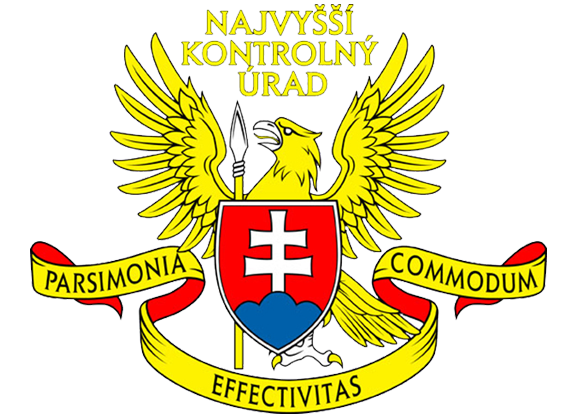Auditing Energy Savings in Public Administration in Slovakia

by Igor Blaško and Imrich Gál
The INTOSAI Working Group on Environmental Audits’ (WGEA) work plan has a number of goals. One of these goals is to prepare a project on energy. This is the SAI of Slovakia experience.
The question of resources and their efficiency is as old as humankind. INTOSAI and individual SAIs certainly have this topic on their minds. Energy efficiency is also at the heart of Europe 2020 Strategy for smart, sustainable and inclusive growth and the transition to a resource efficient economy. Energy efficiency is arguably one of the most cost effective ways to enhance security of energy supply. Energy efficiency itself is one of the biggest energy resources, and that’s certainly the case in Europe. This is why the European Union (EU) has set a target to save 20 percent of its primary energy consumption by 2020. Meeting that target should help the EU achieve long-term energy and climate goals. The combined effects of existing and new EU measures have potential, for example, for saving 1 000 EUR per household/year, creating almost 2 million jobs, and reducing annual greenhouse gas emissions by 740 million tons.
The greatest energy saving potential lies in effective energy consumption management especially in real property such as buildings and homes. The public sector can take a lead by renovating public sector buildings, encouraging renovations in private buildings, improving energy performance of components and appliances used in those buildings, refurbishing public buildings through binding targets, introducing energy efficiency criteria in public spending, and foreseeing obligations to cut energy consumption in whole.
But what are the individual countries and their SAIs´ achievements in this field?
In 2015, the SAI of Slovakia performed a combined compliance and performance audit as a part of the INTOSAI WGEA project on energy savings. The audit goal was to assess the fulfillment of tasks by the State according to adopted international agreements and EU legislation, and finally, fulfillment of the long term goal to lower the primary energy consumption by 20 percent by 2020.
In Slovakia, several Ministries and State Administration Institutions have responsibilities for energy efficiency initiatives and energy savings in the public sector. The institution with primary responsibility for managing the public sector energy effectiveness and energy savings in Slovakia is Ministry of Economy. The SAI of Slovakia was not able to audit all of these institutions for lack of resources; but, the audit covered the most important institutions with responsibility for energy efficiency in the country.
The audit was performed in Ministry of Economy, Ministry of Environment, Ministry of Agriculture and Rural Development, Slovak Innovation and Energy Agency, Environmental Fund and Agricultural Paying Agency. The audited timeframe was 2012 – 2014.
The Slovak Republic has adopted and implemented into its legal framework all EU Directives that concern the energy effectiveness and energy savings. The concept of energy effectiveness is being implemented through three-year action plans.
The Ministry of Economy assesses progress in meeting the national targets every year and, if needed, the Ministry amends the targets and informs European Commission (EC) about those changes.
The Ministry has also established a permanent intra-ministerial commission to prepare action plans for energy effectiveness in Slovakia.
The SAI of Slovakia publishes the relevant reports on its web site.
The audit at the Ministry of Economy detected several shortcomings related to the Slovakia´s progress meeting the nation’s strategic goals and objectives. They were defined as:
- Financial Risks–Derived from the System of Financing the Activities.
1.1 The resources were deemed insufficient, fragmented, and not coordinated. There was no systemic mechanism to support and unite the existing support mechanisms and make provisions for accepting new tools and mechanisms.
1.2 Problematic access to finance energy savings plans and products for municipalities – due to a special legislation (Constitutional Act 493/2011 on Fiscal Responsibility) that sets particular rules for indebtedness applicable in Public Administration and municipalities, some municipalities cannot borrow funds.
1.3 Insufficient sources to finance compulsory renewals of the State Administration buildings that would fulfil the energy savings goals.
1.4Insufficient use of EU Structural funds. For example, the audit reported shortcomings in the pace of public procurements, low and ineffective use of allocated financial resources by the recipient, and high administrative complexity. - Capacity Risks–Lack of Employees in Energy Savings Field.
2.1 With increasing demands on analytical and administrative components of the processes, it would be necessary to increase the number of State employees in the given field. At the time of the audit, there were only 4 people at the Ministry of the Economy to perform analysis, develop legislation, manage the finances, evaluate he programs, monitor spending and administer the program.
2.2 All central organs of the State Administration were experiencing the same problems as described in 2.1 –existing employees having insufficient or poor qualifications and having not adequate time to fulfill the given agenda duties. Also there was a high level of employees attrition that hampered continuity and performance.
2.3 Various necessary assessments took too much time due to low level of employees number assigned to the tasks.
2.4 The individual State Administration departments are not prepared to accommodate increasing requirements from the energy savings plans stemming from the commitments to the EU. - Risks Related to Assessment of Measures in Energy Effectiveness and Progress Towards Meeting the Program Goals.
3.1 The energy savings indicators were not always obligatory – the lack of data didn´t allow assessing possible savings.
3.2 The accountings for energy savings methods were complicated.
3.3 The Ministry of Economy is not going to be a leader for any operational program in the period 2014 – 2020. And that means it won´t have any direct influence to identify energy savings projects that should have priority.
3.4 Great differences were detected in similar projects. Significant disparities were found among various project costs that were identical or almost identical. Financing energy effectiveness founded from public (EU) resources should be equal to those projects in private sector.
3.5 Some European Commission assessment methods and guidance were missing for computing certain calculations. - Risks Related to Translations
4.1 There is no check-up system for before and after adopting EU regulations. After the adoption of the Lisbon Agreement, the system of delegated regulations came into life (delegated regulation allows European Commission to issue a regulation that is only formally approved by the EU Council/Parliament). If a mistake is found in the translation, the regulations are printed and in force with the misprint corrected ex post in “corrigendum” (with a time lag). The translations were approved by the European Commission without possibility to lodge any submission. This timeline made it impossible to check the correct use of Slovak language in connection to Slovak legislative framework. At present, verifications of the translations is done unofficially among DG Energy, DE Translation and the Ministry of Economy. There is no guarantee that all regulations will be examined.
Overall, the audit findings also stated, that
- Slovakia breached its duty to provide annual renewal of 3 percent of total heated and cooled space in buildings owned and managed by Government and its bodies;
- To achieve the energy savings policy goals, the Government should systematically use the proceeds from emission trading schemes and revenues as well as excise duties collected from electricity, coal and natural gases sales;
- Resources for funding compulsory reconstruction of the State Administration buildings in period 2014 – 2020 are not sufficient.
To eliminate the detected shortcomings, the auditees approved 27 measures and SAI Slovakia will monitor their fulfillment. The report also found that it may be necessary simplify administrative procedures and tying the governmental support to achieved energy savings.





